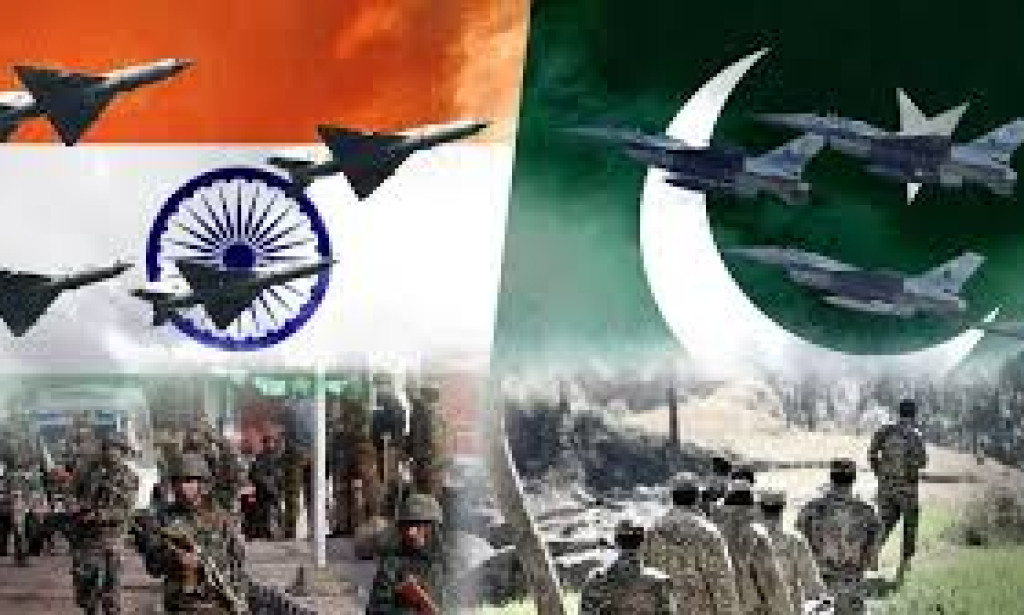Pakistan-India Tensions: A Complex and Longstanding Conflict
The relationship between Pakistan and India remains one of the most complex and tense in South Asia. Since their partition in 1947, the two countries have experienced a series of conflicts, border skirmishes, and diplomatic standoffs that have made peace elusive. The roots of their tensions lie in historical grievances, territorial disputes, religious divisions, and competing national interests.

Historical Background
The partition of British India in 1947 led to the creation of two independent nations—Hindu-majority India and Muslim-majority Pakistan. The division was accompanied by one of the bloodiest mass migrations in history, as millions of Hindus and Muslims crossed borders to join their respective nations. This traumatic event sowed seeds of hatred and mistrust that persist to this day.
One of the most contentious issues since partition has been the status of the region of Jammu and Kashmir. Both India and Pakistan claim the region in full but control only parts of it. The first Indo-Pak war in 1947–48 ended with a United Nations-brokered ceasefire, dividing Kashmir into Indian-administered and Pakistani-administered areas. Since then, the region has been a flashpoint for armed conflict and insurgency.

Major Conflicts and Standoffs
Pakistan and India have fought three major wars—in 1947, 1965, and 1971—and a limited conflict in Kargil in 1999. Each of these wars had its roots in Kashmir or broader political tensions. The 1971 war resulted in the secession of East Pakistan and the creation of Bangladesh, a significant blow to Pakistan and a major turning point in South Asian politics.
The Kargil conflict in 1999 was especially alarming, as it occurred just months after both countries conducted nuclear tests, making the possibility of a nuclear confrontation dangerously real. Although the conflict was contained, it highlighted the volatility of the region and the risks posed by militarization.

Terrorism and Cross-Border Attacks
In recent decades, terrorism has emerged as a critical factor in worsening Pakistan-India relations. India accuses Pakistan-based militant groups of carrying out attacks in Indian territory, including the 2001 Indian Parliament attack, the 2008 Mumbai attacks, and the 2019 Pulwama bombing. These incidents have led to international condemnation and further deterioration of bilateral ties.
Pakistan, on the other hand, accuses India of supporting separatist movements within Pakistan, particularly in Balochistan, and claims that India is involved in destabilizing the country through covert operations

Diplomatic and Economic Fallout
The frequent military standoffs and terrorism-related tensions have taken a heavy toll on diplomatic and economic relations. Dialogues are often suspended, and people-to-people contacts have reduced. Trade between the two nations has also suffered, with both countries imposing bans and tariffs at various points.
The revocation of Article 370 in August 2019, which removed the special status of Jammu and Kashmir under the Indian Constitution, marked a new low in relations. Pakistan strongly opposed the move and downgraded diplomatic ties, suspended trade, and launched an aggressive diplomatic campaign against India in international forums.

The Nuclear Factor and Global Implications
Both countries possess nuclear weapons, which significantly raises the stakes in any confrontation. Although nuclear deterrence has prevented full-scale war since 1999, the risk of escalation remains high. Even a small miscalculation could lead to catastrophic consequences, not just for South Asia but for the entire world.
The Path Forward
Despite the tensions, there have been moments of dialogue, including the Agra Summit, Lahore Declaration, and track II diplomacy. Confidence-building measures, like cross-border bus services and cricket diplomacy, have shown that peaceful engagement is possible.
1. Pakistan and India have long-standing tensions, primarily rooted in the Kashmir dispute.
2. The two countries have fought several wars since their independence in 1947.
3. Border skirmishes and ceasefire violations are common along the Line of Control (LoC).
4. Diplomatic relations often fluctuate due to political events and terrorist attacks.
5. Both nations possess nuclear weapons, raising concerns about regional stability.
6. Efforts at peace talks have been made but often collapse due to mutual distrust.
7. Media in both countries sometimes fuels nationalistic sentiments and hostility.
8. Despite the tensions, people-to-people connections and cultural ties still offer hope for peace.

Ultimately, the key to lasting peace lies in sustained dialogue, mutual respect, and addressing core issues—especially Kashmir—through negotiation rather than violence. Only by putting the needs of their people above politics can Pakistan and India hope to write a new chapter in their relations.



You must be logged in to post a comment.